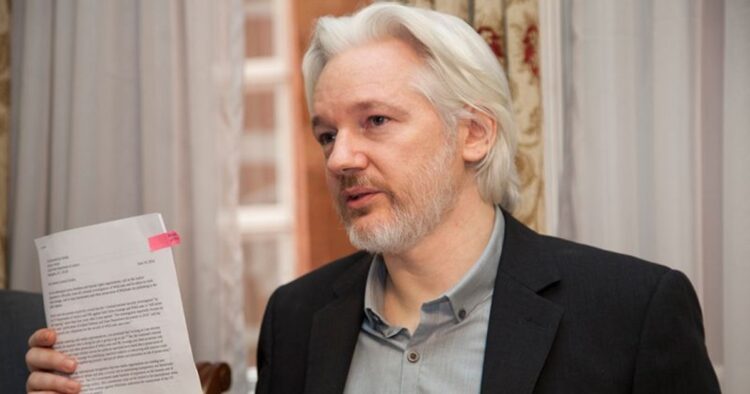Julian Assange, the founder of WikiLeaks, has emerged from a UK prison after striking a landmark plea deal with the US Justice Department. The deal resolves a protracted legal battle over his role in publishing classified documents. Assange is set to plead guilty to a felony charge of conspiring to unlawfully obtain and disseminate classified national defense information under the Espionage Act.
The agreement, outlined in a letter filed in federal court, stipulates that Assange will plead guilty in a court in the Mariana Islands, sparing him additional prison time. This development follows Assange’s years-long confinement in the Ecuadorian embassy in London to avoid extradition to Sweden on rape allegations, later being imprisoned in the UK.
Upon approval of his plea and sentencing, Assange plans to return to Australia, marking a swift conclusion to a case that has captured international attention. Supporters view Assange as a champion of press freedom, arguing that WikiLeaks exposed US military misconduct in Iraq and Afghanistan. Critics, however, contend that his actions endangered national security by disclosing sensitive information.
Assange, 52, faces charges in the US, including 17 counts of espionage and one count of computer misuse, stemming from WikiLeaks’ release of classified documents in 2010. Prosecutors allege he conspired with Chelsea Manning, a US Army intelligence analyst, to hack Pentagon systems and publish sensitive materials.
One such release included a video depicting a 2007 US Apache helicopter attack in Baghdad that killed journalists from Reuters.
The plea deal arrives amid ongoing debate over Assange’s role as a journalist versus a threat to national security. His supporters argue that his actions were journalistic and aimed at transparency, while authorities insist that he violated laws protecting classified information.
Assange’s family and backers have highlighted the toll of his legal battles on his physical and mental health, emphasizing his long confinement and health deterioration.
ALSO READ: “Julian Assange to Plead Guilty in US Espionage Deal and Return to Australia”
The plea agreement also follows deliberations at the highest levels, including discussions between US President Joe Biden and Australian officials about dropping the prosecution against Assange. His case has sparked widespread debate over press freedom and government transparency, leaving a lasting impact on legal precedents and international relations.
As Assange prepares to finalize his plea, the resolution of his case marks a pivotal moment in the intersection of journalism, national security, and freedom of information on the global stage.

















Comments